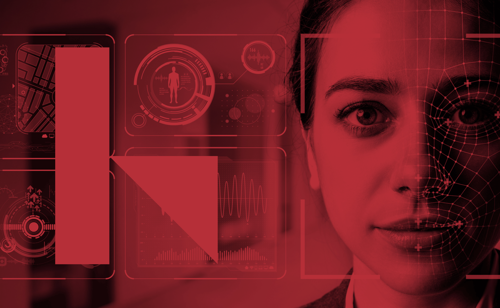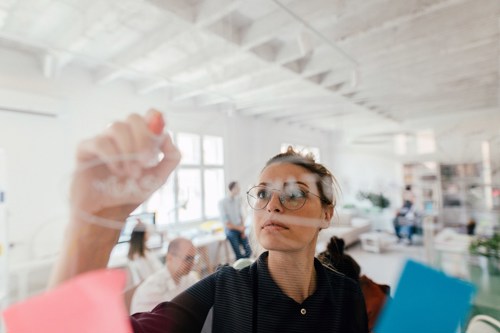People - not economies - react to climate change
-
Sist oppdatert
15. mars 2023
-
Kategori
-
Tema
- Klimamodeller
- EU-forskning
- Green Deal
- Climate change
- Horizon
- Medvirkning
- Bærekraft
EU's Horizon project WorldTrans aims at bridging the gaps between models, experts and user communities in order for Europe to deliver on its Green Deal ambition.
KNOWLEDGE AT KRISTIANIA: Europe's Green Deal ambition
In 2022 the EU challenged the research community to improve the state-of-the-art of «Integrated Assessment Models» (IAMs), as the existing models are too complicated.
Kristiania is one of 10 European partners who joined in a Horizon Europe-funded project called WorldTrans – Transparent assessment for real people. It aims at improving models to see how economic and social development affects climate change.
IAMs are models designed to assess how choices about economic and societal development affect each other and the natural world, including climate change. They are different from the classic climate models that are based only on natural science.
Today’s models are too complex
IAMs are programmed to provide policy-relevant insights into global environmental change and sustainable development. They are named «integrated» because they combine different strands of knowledge to model human society alongside the natural Earth system.
They can be used to answer questions like: How can the world avoid global warming of 1.5 °C above pre-industrial levels «at the lowest cost», or «without the use of nuclear power»?
However, today’s state-of-the-art IAMs are so large and complicated that their mechanisms are fully understood only by their makers.
Because of this, there is a growing information gap between modelers, domain experts, citizens and the people making decisions about climate action in the real world.
Engagement of citizens is important to reach Green Deal ambition
For Europe to deliver on its Green Deal ambition, which is to make Europe’s economy climate neutral by 2050, the engagement of citizens may be as important as dry facts and figures. An important hypothesis behind the project's approach is:
“People (not economies) react to climate change; people make decisions to act or not to act. Such is the nature of a democratic process. It is this realization that has made us choose to address transparency, openness, engagement and to work with models of the system, not its parts.”
Kristiania will develop financial and monetary modules
WorldTrans will use system dynamics methods to develop models of lower complexity, which are still able to capture key interaction between socioeconomic development and biophysical dynamics.
In fact, we aim to expand current best practices to provide better representations of the actual processes of climate change and the functioning of the contemporary financialized economy.
This will allow us to answer new questions regarding the distribution effects of climate policy, and the relative merit of financial taxation for green purposes.
Kristiania will be responsible for the development of the financial and monetary modules, thus expanding the frontiers of current best global practices.
The models must be understandable and usable
The team will also work to «bridge the gaps» between models, experts, and user communities to ensure that integrated assessments are understandable and usable for citizens and policymakers alike.
In particular, we aim to provide effective visual representations of the key feedback loops operating between the socioeconomic and the natural world. One example is the complex interactions between economic growth, demographic expansion, technological development and CO2 management.
We hope to be able to provide everyone with the ability to understand and engage with these complex issues that will be dominating the global political discourse over the next decades.
About WorldTrans
- WorldTrans is a 4-year, €5 million Horizon Europe funded project led by the Norwegian Meterological Institute and supported by 10 partners across Europe.
- Other partners from Norway are Kristiania and The University of Bergen.
- The project started 1st of December 2022 and will end 30th of November 2026 with a total budget of € 4 635 775
We would love hearing from you:
Send your comments and questions regarding this article by e-mail to kunnskap@kristiania.no.

Meld deg på vårt nyhetsbrev
N1

Trust, less hierarchy and empowerment are keys to innovative organizations
Trust serves as fuel for innovation is a new kind of oil which every nation has access to, writes David Coates and Kari Mette Solheim.Les mer
Designing as the Motor of Change
The demands on academia is not just to understand and predict, but to improve and change. We are calling for designing as the motor of change.Les mer
N2

Researcher calls for a new, sustainable normal after the pandemic
Two sides of the same problem: social and environmental sustainability must be tackled as one, maintains researcher Beniamino Callegari.Les mer
The Rise of Generation Co
We can observe a resurgence of “we”—the sense of a common humanity underpinning society. The question is, will this endure?Les mer



